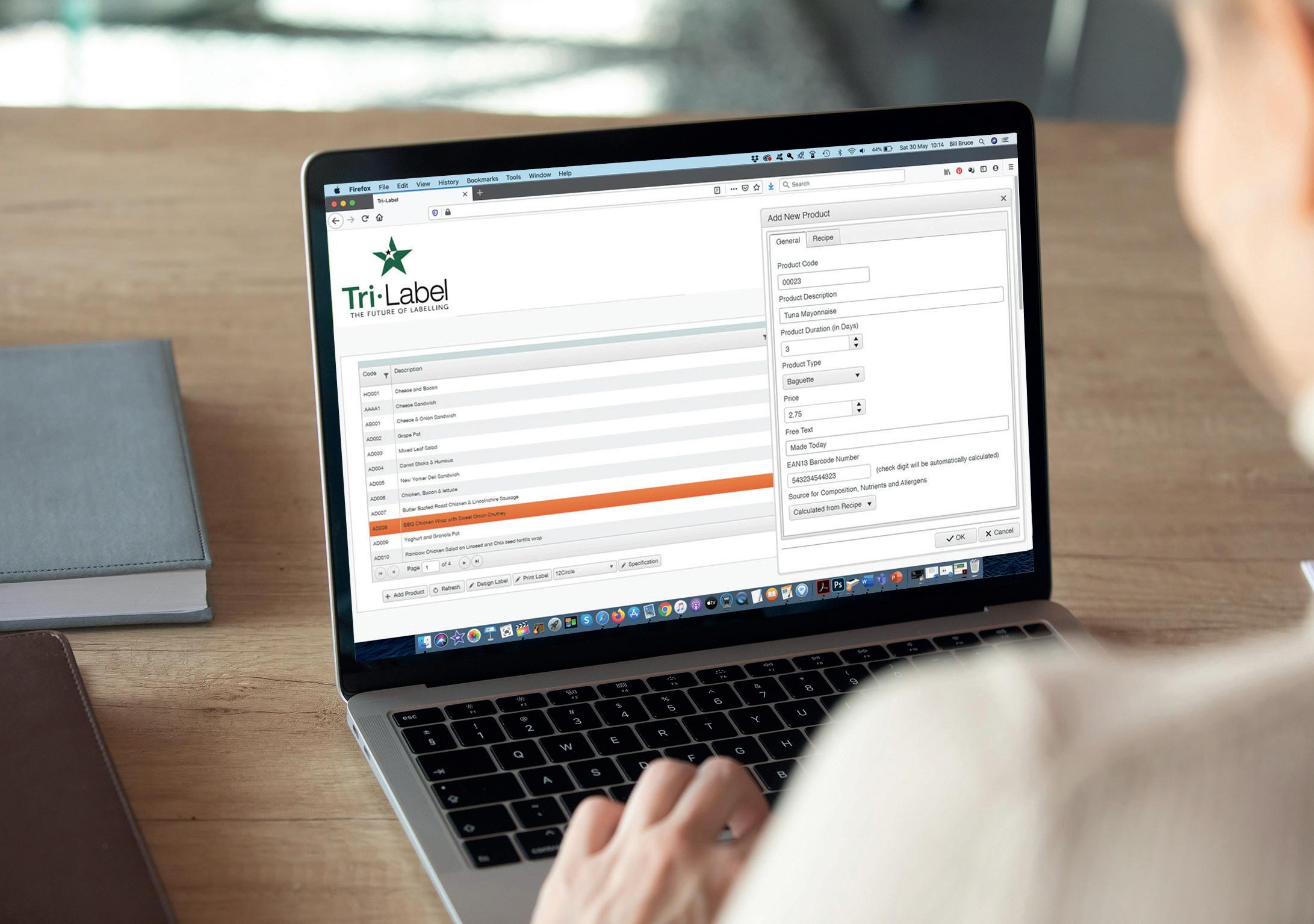
4 minute read
Squeezed middle need support if hospitality restart is to succeed, say FDF.
Carr’s Flour launch premium grade pizza flour
Leading UK flour millers, Carr’s Flour, are launching a new premium grade pizza flour - Amore Farina - meaning “love flour”, say the company.
After a year in development with pizza making experts, Carr’s say that they are proud to offer a flour they claim will be the best pizza flour available to the UK trade market.
The brand new Amore Farina creates a strong, white, smooth elastic dough that remains light and gives the perfect rise, to create authentic pizzas, every time, claim the company, enabling customers to create not only delicious thin and crispy bases but also deep pan pizzas too.
Milled at Carr’s Flour’s Maldon Mill, the pizza flour was created in the test bakery, and undertook a three stage scientific development process to ensure consistent taste and quality for every pizza made using the new flour.
“Our new traditional Carr’s Pizza Flour has been developed by experts to produce the best pizza base and we’re delighted to be able to offer this to our customers,” said Allan Burns, sales and marketing director at Carr’s Flour. “We will be supporting this launch with a heavyweight promotion and giveaways. Over the past year, we have worked tirelessly with pizza makers to discover what makes a great pizza flour and believe you will ‘Amore Farina’!”
Squeezed middle need support if hospitality restart is to succeed, say FDF
Over 20 organisations from across the ‘farm-to-fork’ supply chain, including PAPA (the Pizza Pasta & Italian Food Association) have warned that food and drink suppliers to the hospitality and food service sector risk being overlooked as hospitality re-opens.
The report - Maintaining Post-Covid-19 Capacity in Hospitality and Food Service Supply Chain Businesses – ‘The Squeezed Middle’ - has been produced by the Food and Drink Federation-convened Food and Drink Industry Roundtable and says that the level of support available to the ‘squeezed middle’, is poorly focused and will not deliver the recovery plan the UK government is working towards.
Research undertaken for the report shows that fewer than half of food and drink manufacturers have applied for Coronavirus Business Interruption Loan Scheme (CBILS) or Bounce Back Loan Scheme (BBLS) support. Concerns over incurring additional debt and associated interest payments were cited as the main reason. At the same time, many companies are facing up to 50% of their customer base delaying payment or not paying outstanding invoices.
While the UK government’s furloughing scheme has been popular and effective amongst the ‘squeezed middle’, there are concerns about whether the hospitality and food service markets will have recovered to viable levels when it ends in October, with fears that removing the support too early would pose serious risks to businesses and slow the UK’s economic recovery.
The UK government’s decision to underwrite Trade Credit Insurance was widely welcomed across the food and drink industry. However, many businesses continue to report concerns that trade credit insurers are not adjusting their criteria to take into account the pandemic, making unrealistic demands on businesses and their debt management.
The report outlines a series of practical steps government can introduce to ensure the squeezed middle are able to play their role in a post-virus recovery and including the maintaining of furlough support through the UK government at a rate of 80% of salary contribution until those markets return to commercially viable levels.
In addition, it recommends that the UK government should place a requirement on the trade credit insurance industry to develop best practice rules of operation which include greater transparency and formal notification of the reason(s) for refusal or withdrawal of cover.
Insurers should be required to reinstate reduced or withdrawn cover back dated to 1 March 2020, except where there are clear and identifiable reasons as to why this would no longer be appropriate, the report proposes, and governments should provide more targeted support for the ‘squeezed middle’ that does not incur additional business debt (a relaxation of current rules for Apprenticeship Levy funds to allow businesses to maintain existing employment, for example).
Governments should also create schemes for small, medium and micro businesses within the ‘squeezed middle’ that provide initial cashflow injections to businesses requiring support to secure orders for materials and/or build stock in readiness for the recovery of customer demand, the report suggests.
Ian Wright CBE, chief executive of the Food and Drink Federation said: “Throughout the pandemic, the food and drink industry’s hidden heroes have been working hard to keep the country fed. But those companies who supply the food service and hospitality sectors have seen their business disappear overnight, and yet have not been afforded the same government assistance. The hospitality and food service sectors will play a vital role in contributing to the UK’s economic recovery, but any restart will be stymied without further support for those food and drink manufacturers operating in the squeezed middle.”










